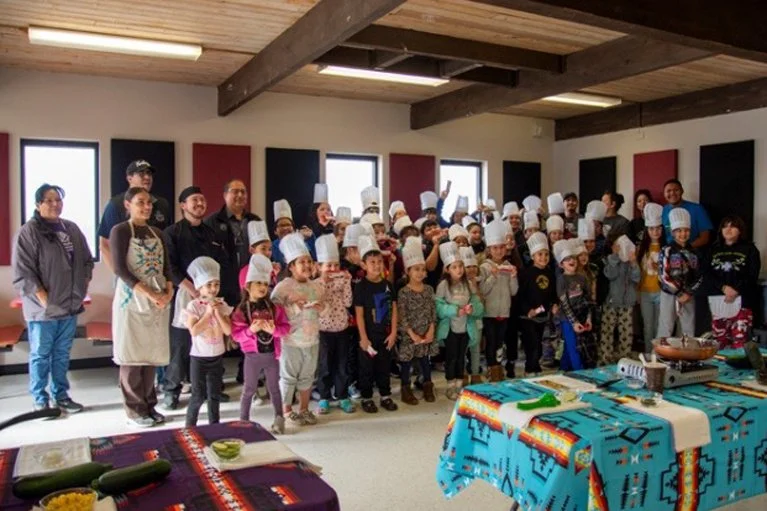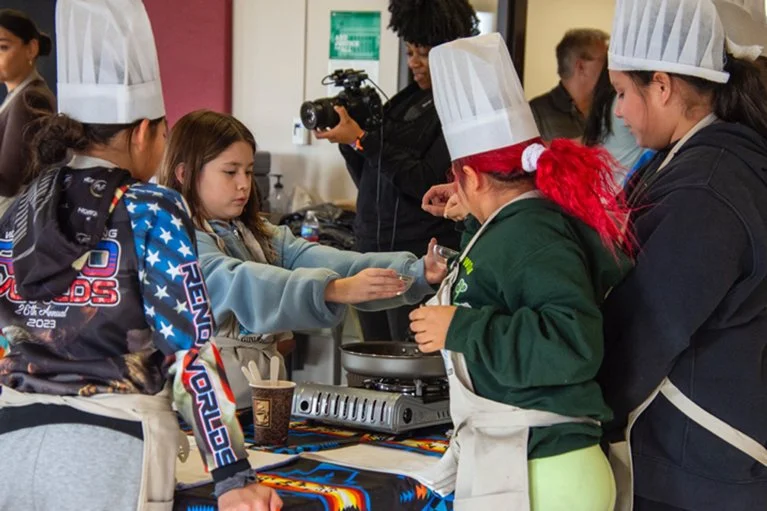The Power of Food: How Native Youth Cook Up Tradition
Allowing youth the space to learn and embrace their heritage is crucial for the preservation and celebration of cultural diversity.
By providing opportunities for young people to explore their roots and learn about their cultural traditions, we can empower them with a strong sense of identity and belonging. This, in turn, can help to foster a greater appreciation and understanding of cultural differences, leading to a more tolerant and inclusive society.
"I take great pride in my Native American heritage and feel deeply connected to people of diverse cultures, animals and the environment. This connection is both spiritual and mental, and influences my daily life,” says Kathy, staff member at Prairie Band of Potawatomi Boys & Girls Club.
Boys & Girls Clubs of America is the largest Native youth service provider in the nation, with more than 230 Clubs reaching over 120,000 Native youth. Native Clubs prioritize the well-being of youth, families, communities and staff through culture, life-shaping programs and mentorship that fosters resiliency for Native young people and meets the needs of the community.
One of the most powerful (and delicious) ways that cultural heritage is preserved is through food. The importance of different recipes and ingredients is passed down from generation to generation, allowing traditions and customs to thrive. This is especially true for Native American Tribes across the country. And for young people, food is an accessible way to connect to culture from an early age.
Prairie Band Potawatomi Nation Club Members excited to be Chefs for the day!
A Taste of Tradition
Food is not just a source of sustenance, it is a reflection of our heritage, values, and identity. The way we prepare and consume food is deeply ingrained in our cultural practices and traditions. Exploring the food culture of different communities and our own can help us understand history, beliefs and a way of life.
In Mayetta, Kansas, the Boys & Girls Club of the Prairie Band Potawatomi Nation serves 256 Native young people of the Potawatomi Nation. The Potawatomi people originated in the present-day Great Lakes Region.
Over the course of history, the Potawatomi people were separated and now consist of nine distinct federally recognized bands. One of the nine bands migrated to Mayetta and is named the Prairie Band or Shkotani “Prairie People.” Today, the Nation stewards a herd of over 300 Bison on the Potawatomi Reservation.
The Club spends time with young people learning about food, including making traditional dishes. Youth at the Club have a particular fondness for frybread, a traditional dish of indigenous people of North America. Frybread is a type of flat dough bread that is usually fried or deep-fried in oil that can be eaten on its own or added to a large number of meals such as tacos, beef and hominy, served alongside soup and more.
Gracie, a young Prairie Band of Potawatomi Club member, says her favorite part of her Native American Heritage is the food because that’s the main time they all come together as a family and community. “If there’s food there, then you can promise that my family’s probably going to be there!” Gracie exclaimed.
Gracie and her Club friends cooking a traditional dish
The Prairie Band of Potawatomi Boys & Girls Club's staff members love to talk to the kids about cooking indigenous foods and the importance of hunting and fishing on the Tribe's land. They regularly discuss the benefits of using organic ingredients and avoiding processed foods, emphasizing its positive impact on health.
Teaching children about food and cooking is essential for their overall well-being, and it also provides an excellent opportunity to introduce them to potential career paths they may not have considered.







